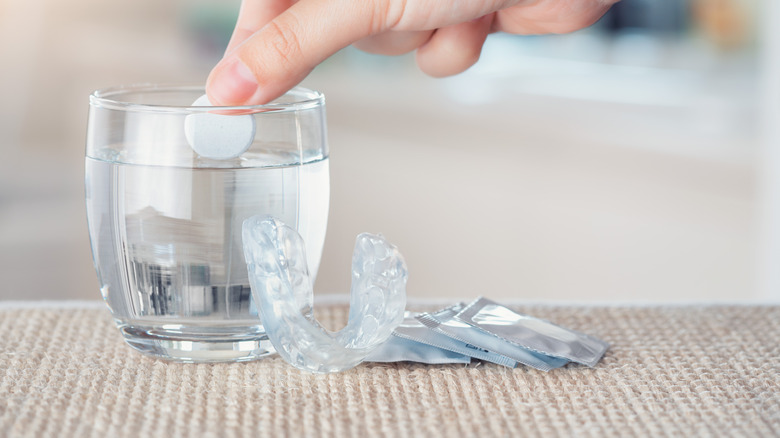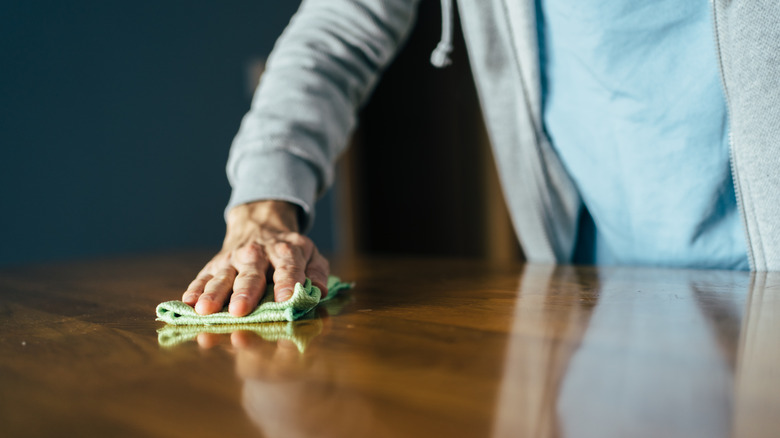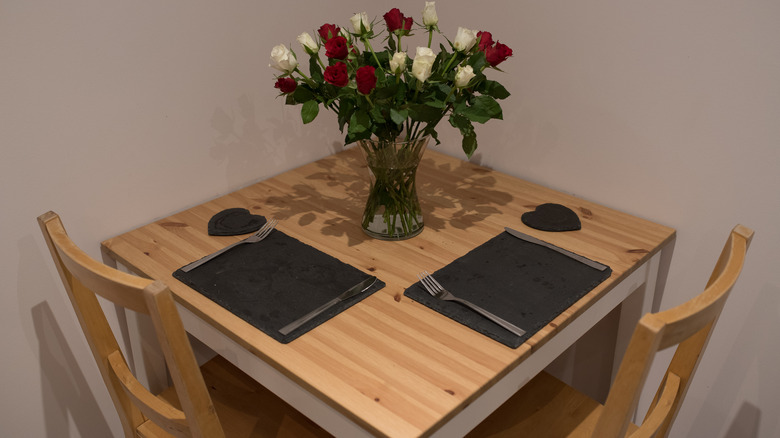What You Should Know Before Using Denture Tablets On Wooden Surfaces
Wooden surfaces, renowned for their timeless elegance, demand thoughtful care to preserve their beauty. In the pursuit of effective cleaning solutions — specifically for coffee stains — denture tablets emerge as a potential, yet unconventional, option. Before delving into this realm, it's crucial to understand the intricate nature of wood. Unlike non-porous materials, wood breathes and absorbs, which poses a challenge, as the fizzing action might allow the tablet's components to penetrate and compromise the structure, making it vulnerable to the chemical interactions. Let's unravel the complexities of using denture tablets on wooden surfaces.
Exploring the world of denture tablets reveals a composition and purpose initially designed for denture hygiene. The effervescence caused by the bicarbonate of soda (baking soda) that effectively eliminates stains and bacteria on dentures may seem enticing for cleaning wooden surfaces. Recognizing potential pitfalls is crucial for preserving the natural beauty of wood and avoiding unintended consequences.
The application of denture tablets to clean coffee stains on wood extends beyond the fizzing action; it delves into the chemical composition. The nature of these cleaning agents, while effective for dentures, can react unfavorably with the natural components of wood. This chemical interaction may compromise the wood, leading to discoloration or alterations in the wood's texture. This enhanced perspective showcases the need to ensure that any cleaning methods are performed correctly in order to avoid long-term damage.
Things to consider
While unconventional, denture tablets can be employed effectively on wooden surfaces with proper precautions. Certain types of wood with higher tannin levels — such as oak, walnut, cherry, and mahogany — are more prone to staining. It's crucial to avoid cleaning these with baking soda products, as the alkaline nature may react with tannins, leading to discoloration. Conversely, low-tannin woods, like maple, birch, and aspen, are generally more resistant to staining from baking soda. Tailoring cleaning approaches based on wood type is essential for preserving its longevity and aesthetic appeal.
When cleaning and caring for any wooden surface, conduct a patch test on an inconspicuous spot first. This small-scale assessment allows you to observe any adverse reactions or discoloration. It's a proactive step to prevent undesirable results. By diluting a denture tablet in warm water, you ensure a mild solution that reduces the risk of the bicarbonate of soda in the tablet causing harm. This controlled mixture aims to harness the cleaning power while minimizing potential structural vulnerabilities. When applying the denture tablet solution to the coffee-stained area, use a soft-bristle brush or a microfiber cloth. These gentle tools help distribute the cleaning mixture evenly without causing abrasions or scratches to the wood.
Alternatives and prevention
As we explore alternatives to denture tablets for wooden surfaces, know that one size does not fit all. A mixture of mild dish soap and warm water emerges as a stalwart alternative, providing effective cleaning without the potential risks associated with denture tablets. This solution not only removes dirt and grime, but also ensures the preservation of the wood's natural oils, promoting its longevity.
For those seeking natural alternatives, a mixture of 1/2 cup of olive oil, 1/2 cup of apple cider vinegar, and 1/4 cup of lemon juice can serve as a homemade wood polish. This blend not only cleans, but also adds a lustrous finish to wooden surfaces. Additionally, beeswax-based polishes provide a protective layer, enhancing the wood's resilience and showcasing its natural beauty. It's good to also consider preventive measures as an integral part of your wood maintenance routine. Coasters and placemats act as guardians, preventing direct contact between potentially harmful substances and the wood. Overall, while there is anecdotal evidence that denture cleaner can help clean coffee stains from wood surfaces, you should proceed with caution.


